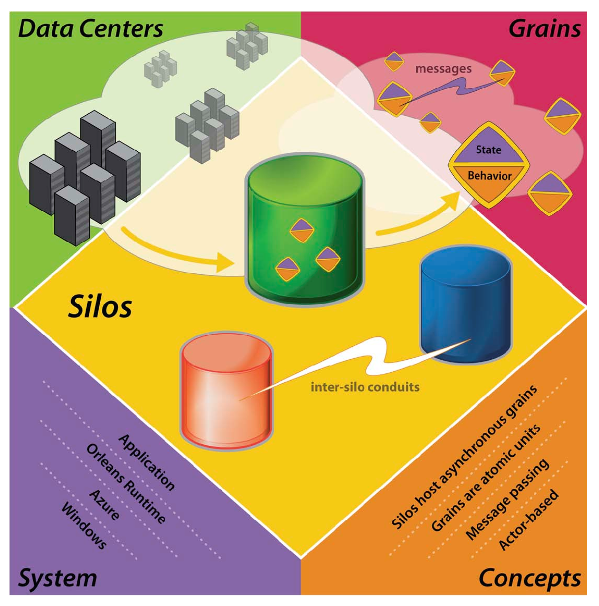Orleans: More on Microsoft's cloud programming model in the sky

Today, Microsoft's programming model for the cloud is .Net. At some point in the future, it may become Orleans.
Orleans is a Microsoft Research project about which I've written a bit earlier this year. At Microsoft's Professional Developers Conference in Redmond this week, the company is showing off Orleans as one of its research demos.
Orleans is currently a project in Microsoft's eXtreme Computing Group, which is chartered with research and development “on the cutting edge of ultrafast computing.” A prototype of Orleans exists and a couple of other Microsoft research projects, like the Horton online-query execution tool, are built on Orleans, according to company officials.
Here's an updated description of Orleans from Microsoft's Web site:
Orleans "offers a simple programming model build around grains, a unit of computation with private and shared state that communicates exclusively by sending messages to other grains and receiving and replying to requests from clients. Combine with the Orleans runtime, which provides functionality commonly used in this type of system, Orleans raises the level of abstraction and helps developers build scalable correct Cloud applications."
An overview diagram of Orleans from the research site:
Orleans has three main components: The programming model, the programming language and tools, and a runtime system. Orleans uses standard .Net languages (currently only C#) with custom attributes, according to the Web site.
"Developers write cloud applications in a .NET language and declare persistence, replication and consistency as attributes on grains," the site explains.
There's no timetable or definitive commitment as to when Orleans will become the programming model for the Microsoft cloud. But it is still interesting to see what might come to be at some point....
